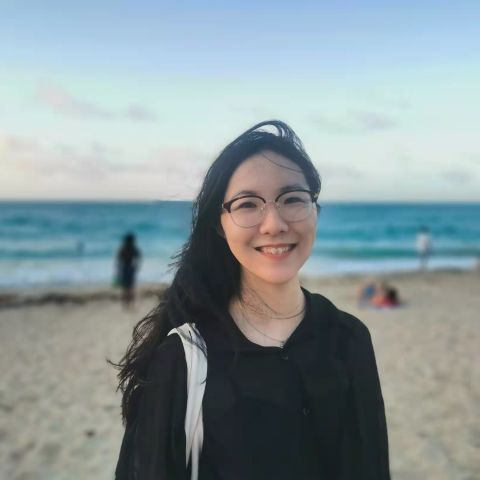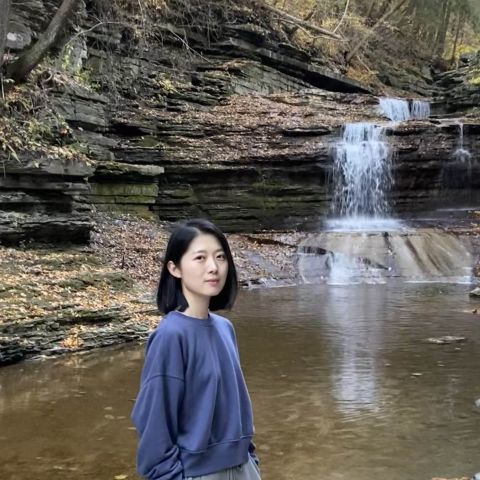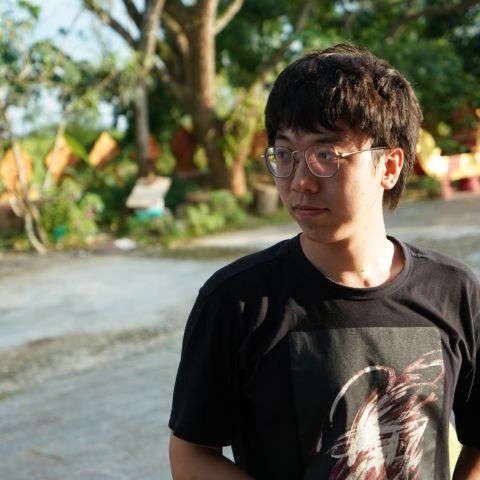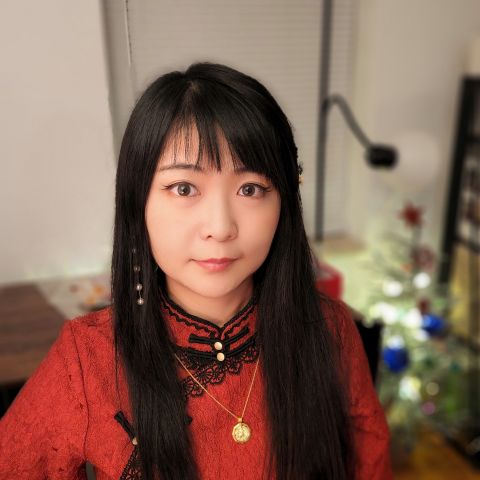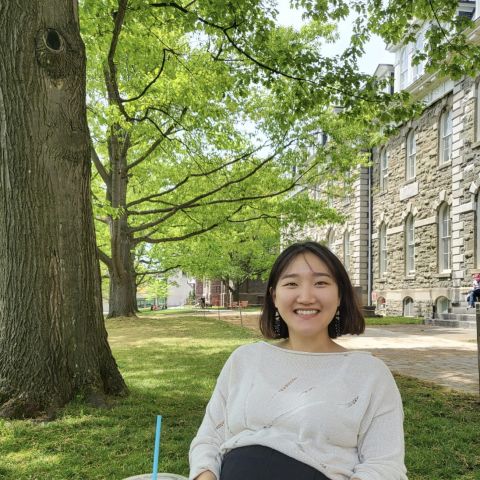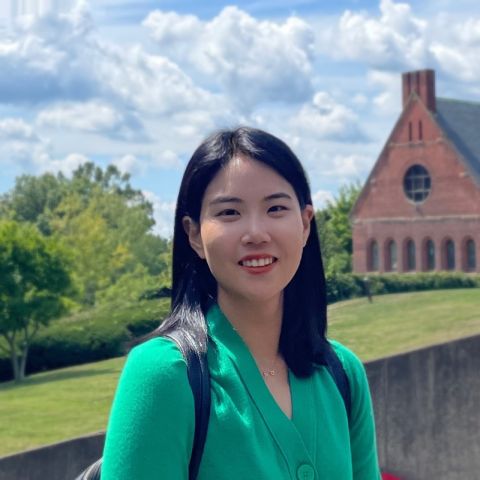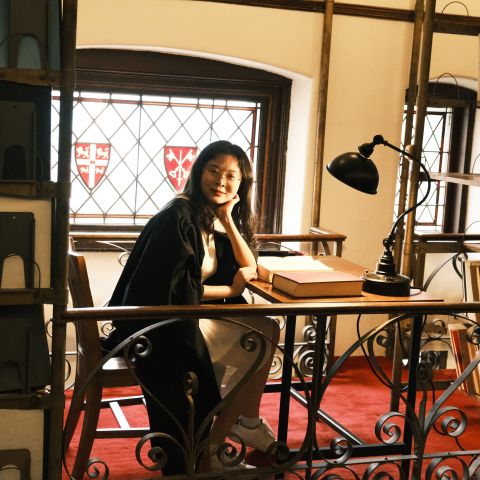Announcing the 2023-2024 EAP Fellowship and Grant Recipients

Congratulations to the EAP Fellowship and Grant Recipients!
The East Asia Program is proud to support the research of our graduate students.
CV Starr Fellowship
Peggy ChaoHistory of Art and Visual Studies DepartmentObjects, Ritual, and Tea: Crafting Taiwanese IdentityPeggy’s dissertation investigates the material culture of tea, and the ways in which tea is constructed and re-invented as a cultural tradition and local symbol of modern Taiwan. The project focuses particularly on chayi (tea art), a modern terminology created by tea connoisseurs in Taiwan in the late 1970s and early 1980s. Chayi is a form of artistic expression in which the preparation and serving of tea requires a certain level of knowledge, skills, and training. Incorporating the performative and ritual aspects into the discussion, she examines not only the textual and visual representations of chayi, but also the embodied and sensorial experiences of tea practices thereby contributing to the formation of art, tradition, and identity. Mengwei LinDyson School of Applied Economics and ManagementLocal Government Competition and Firms' Location DecisionsWhen businesses decide where to locate, they consider local policies. New firms boost local economic growth by increasing employment and paying taxes. For her research, Mengwei will analyze local government competition by developing a one-dimensional policy measure and a structural framework to understand the welfare consequence of this competition on business entry in the context of a developing country. Tianyi ShouComparative LiteratureThe Globe and its Discontents: Imperial Space-Time, Ethnographic Form and Global Imaginations, 1900-1950Tianyi’s research examines the time period between 1900 and 1950 to tease out an imperial logic of time that precludes a truly global future, and the global imaginations that can be salvaged to think against it. Fin-de-siecle Europe saw a paralysis of “imperial progress,” when the developmental time of industrial capitalism was disrupted by empire’s absorption of “backward” spaces into itself. Tianyi argues that arising with the bourgeoning discipline of anthropology, ethnography, the writing (graphein) of “race," "culture” (ethnos), enabled humanist subjects to write about ethnos as objects, reinventing the globe as an imperial space-time that fused a modernized present of the West and a primitivized past of “The Rest.” Bringing together disparate archives, literature and media, Tianyi interrogates the lexicons of globalization that engulf ethnos in spaces without futures and reimagines futures for a global space. Anke WangHistoryAbolitionist Parallels: Regulating Domestic Servitude in South China, 1840-1940Anke’s dissertation, tentatively titled “Abolitionist Parallels: Servitude, Legal Reform, and International Intervention on South China Borderlands 1800-1950”, examines the regulation of human bondage from the 1840s to the 1950s in China and Chinese communities in Southeast Asia, showing how a universal category of slavery was made and negotiated in confrontations between colonial regimes, sovereign states, and international law. By tracing how abolitionist legislations were circulated between the Atlantic and Asia through the intermediary of international organizations and diasporic Chinese, this study will explore the paradoxes of intervention and sovereignty, abolitionism and property, and the persistence of social vices in relation to humanitarian governance. Diverse Knowledge East AsiaThomas CressyMusicology/EthnomusicologyBahha: an anthropological reception history and cultural study of J.S. Bach in JapanThomas will use the fellowship to conduct ethnographic fieldwork in Japan. In order to gain further insight into the overwhelming popularity and engagement with J.S. Bach in Japanese society, he will use his time in Japan interviewing professional musicians, scholars, and amateur groups, as well as consulting primary sources and secondary literature not available in Cornell. Such fieldwork will be indispensable to Thomas’s dissertation, which maps out the different ways Bach's music has been used by Japanese social actors from the Meiji period until the present day. Yue ZhaoScience and Technology StudiesOut of Sync: Biorhythms, Bodies, and Information in China, 1979-1999Yue’s research is situated at the intersection of the history of science, medicine, and information technology in modern China. Her dissertation project, currently entitled "Out of Sync: Biorhythms, Bodies, and Information in China, 1979-1999," seeks to understand how the human body became a site of (self-)governance through numerical calculation and prediction in industrial labor management, reproductive health, and daily self-care practices in post-Mao China. It investigates the roles of a wide range of local actors, including scientists, industrial enterprises, educational institutions, and ordinary citizens, who actively employed biorhythmic technologies in everyday life to organize, predict, and archive the vitality cycles of the human body to guide future activities. By doing so, the project uncovers the changing relationship between information technologies, bodily management, risk control, and subject formation in China's exploration of its own modernity during a transitional period. Hu Shih FellowshipZhuang HanGlobal DevelopmentMigrant Non-workers in Southeast ChinaZhuang’s dissertation project investigates the life of a special group of young migrant workers living in Shenzhen, called the “Sanhe Gods.” These young people choose to live on unsecured daily paid jobs, even if stable factory jobs are available. While public opinion explains their situation due to personal incapability and systematic social inequality, Zhuang’s project aims to emphasize the group’s agency in their decision to give up on long-term factory employment. By studying their experiences, Zhuang hopes to generate new knowledge on resistant practices and culture against the exploitive capitalist working culture by bridging the empirical experiences of the “Sanhe Gods” and the theoretical analysis of systematic social inequality and individual agency. Lee Teng-Hui FellowshipYoung-Hoon KimLinguisticsOn the Nature of Pronominal Gaps in Japanese and KoreanYoung-Hoon’s research focuses on the nature of pronominal gaps in Japanese and Korean, where the intended meaning is conveyed without using any overt linguistic form. While this has been largely attributed to the discourse context in the languages, he is investigating this phenomenon from the perspective of syntax and semantics, aiming to provide a unified structural mechanism lying behind pronomial gaps. This will be interwoven with the previous analyses by discourse context, given the recent development in linguistic theory where discourse information is in a close relationship with syntactic and semantic derivation.
Yumeng ZhangAsian StudiesStatus Dissonance among Non-literati Elites in Late Medieval China: A Comparative Approach Integrating Material and Textual SourcesAs a third-year Ph.D. student in Asian Studies, Yumeng focuses on studies of popular religions, medieval elite cultural history, material culture, and archaeology. In her dissertation, she will explore the issue of status dissonance among non-literati elites during the Tang (618-907C.E.) and the Song Dynasties (960-1279 C.E.). With the support of the Lee Teng-Hui Fellowship, she will conduct fieldwork in the warehouses of local museums, libraries, archives, and cultural heritage departments in northern China. She plans to visit tombs and collect data on excavated materials that have not yet been published or analyzed in depth. This fieldwork will allow Yumeng to gain a more comprehensive understanding of the non-literati’s lives, agency, and culture, as well as the status dissonance they experienced. By studying these materials in conjunction with normative texts, she aims to bridge the disciplinary and methodological disconnections in current scholarship. Robert J. Smith FellowshipEuna KimCity and Regional PlanningVariegated "Affordability": A Cross-Cultural Investigation of Affordable Housing Development in New York City and SeoulFacing a global problem of lagging wages, rising housing costs, and a shortage of affordable housing, there is a plethora of studies investigating housing policies and practices, often making comparisons between countries. Despite many studies examining affordable housing challenges in the international context, there has been surprisingly limited attention paid to the different understandings of “affordability” in each culture. Varying ideas of what constitutes “affordable housing” lead to vastly different conceptions of the affordable housing problem and responses. To address this limitation, Euna examines New York City, USA, and Seoul, (South) Korea to probe into different perceptions of affordability. Through a comparative study of the affordable housing programs and the finance system that undergirds such programs, underlying assumptions and perceptions of affordability are investigated. Eunjeong KimArchitectureUndoing Democracy: Architecture of Foreign Aid in Postwar KoreaEunjeong Kim explores the architectural history of postwar Korea built with the supply, and by the performance, of foreign aid. She examines the intersections between Korea's built environment, foreign aid, the Cold War formation of pro-capitalist democratic ideology, Korea's enchantment with modernity in the wake of decolonial struggles, and the complicity between the United States and Japan to uphold imperial supremacy. In doing so, she uncovers how architecture, as a historical actor, played a role in cultivating instrumental democracy while continuously displacing the political foundation of democratic subjectivity. Language Study GrantsSu-Yeon SeoAsian StudiesSu-Yeon spent the summer attending Indiana University at Bloomington Summer Language Workshop to gain advanced knowledge in Japanese language. Su-Yeon’s research focuses on pre-modern book history of China and broader East Asia, especially of premodern Sinitic dictionary and encyclopedia. She mainly examines how language plays out in the organization of information and the shaping of locality, supplemented with the scrutiny of materiality and physicality of books, as well as their transregional movement. Yuanxue JingAsian StudiesYuanxue studies the changes in character design in Japanese games and manga, as well as how media techniques in a constellation of contemporary pop-cultural practices affect audience perceptions of characters. Her current research explores how and why women-oriented instant message-style games and novels can shape the illusion of a player/reader-virtual character intimacy.
|

